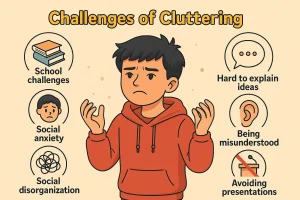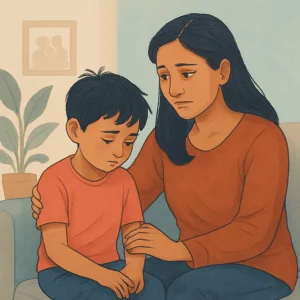Signs that You Need to Meet a Marriage Counsellor
By Prapoorna M
Last Updated: November 27, 2021
Every person gets into a dreamy sequence of some typical filmy-type illusion about the marital life while getting married. Only after a few years, we understand that life is not just a fairy tale or some Yash chopra’s beautiful love story. Marriage is like something that needs to be worked on, at least periodically. Being a couple, the days after marriage would be so new that you try to learn new things and adjust to everything, showing ardent love towards each other. You would plan everything and try to be the best and to impress each other.
But as days pass by, some undetectable snags could creep into your relationships in the form of unavoidable daily chores, work pressures, issues with close relatives like in-laws, increased screen timings, financial hurdles etc. leaving your inner being so lonely. An astonishing fact is that, studies say that the relationship of one in every four couples is in the same crisis!!!

What Happens Usually?
It is a common scenario that the initial days of marriage are so exciting that we tend to allot a lot of time to each other, prioritizing the warm new intimacy. Later on, when there comes a number of issues into the picture, like career growth, job demands, increasing financial requirements which could after a couple of years be followed by children and their requirements, priorities do change. It’s inevitable for us to put them before our comfort. But, what about us? Are we slowing down to fulfill our personal needs after accomplishing the ones on the top list? In that case, the neglected ones would occupy the top place and wash off our peace of mind.
Common Issues Addressed in Marriage Counselling
| Issue | Brief Description | Strategies |
|---|---|---|
| Communication Breakdown | Difficulty in expressing thoughts and feelings effectively, leading to misunderstandings and conflicts. | Active listening exercises, communication skills training, and structured dialogue sessions. |
| Financial Disputes | Disagreements over budgeting, spending, saving, and financial priorities, causing stress and tension. | Financial planning workshops, conflict resolution techniques, and setting shared financial goals. |
| Intimacy Issues | Decreased physical or emotional intimacy, affecting the connection and satisfaction in the relationship. | Counseling on emotional closeness, scheduled intimacy times, and exploring underlying causes. |
| Parenting Differences | Conflicting approaches to child-rearing and discipline, leading to disagreements and inconsistency in parenting. | Parenting classes, family therapy sessions, and development of a unified parenting plan. |
| Trust and Infidelity | Challenges in rebuilding trust after betrayal or dealing with jealousy and insecurity. | Trust-building activities, transparency practices, and individual therapy for healing. |
How does that happen?
When you tend to neglect your concerns and wishes for a longer period, they would soon become your needs. Every one of us must give some personal time to our wishes to be fulfilled, if not daily, at least periodically. Having a nice talk with spouse, enjoying healthy sex life, spending some personal time is necessary for every married couple.
When such time is not spent, the mistakes that were once laughed off, could turn into complaints and the soft wishes that once used to be, would turn into harsh criticisms. Nobody does these things intentionally. But, they happen as a result of the fermentation of forbidden desires in the milky ocean of our mind, turning it to be sour. So, be watchful.
Also Read: Lack of Sexual intimacy in Relationships
Signs that you should see a Marriage Counsellor
Let’s now have a look at the list of things that you might discover between you both. In case, you feel them related, consider it is high time you book an appointment with your marriage counsellor.
- When you don’t feel that emotional closeness: When you find that the conversations between you both are just superficial. These conversations just touch the topics like the groceries needed, bills to be paid, calls to be attended or just to say that the food is ready.
- Seeking Help from Others: If you both start seeking emotional support from others rather than you both with each other, or start complaining to others on each other.
- When you both interfere in another’s activities: When you both feel like interrupting or interfering in other’s activities and want to rule emotionally. For example, “Why aren’t you letting me know your phone’s password? Don’t you love me anymore?”
- When you both end up in repetitive arguments: There will be repeated instances like two or three in a week where you both end up in yelling, having arguments and high emotional reactions instead of getting to a resolution. You both would be fighting over everything, lacking the core issues in your relationship, and staying struck in superficial arguments.
- You might not be Willing to: It could happen that you are struck and you don’t know how to break the cycle of such arguments or some gap that occurred between you both because of the previous arguments. You could not be able to come out of it and solve on your own and your spouse doesn’t care, out of that anger.
- Touch-Me-Not: You or spouse, if behaves in a touch-me-not kind of way. Like, whenever one comes to have a talk or ask for something, the other could be demanding privacy, which could sometimes be not in a right way!! Such undeclared silent wars could lead to disasters.
- Loss of a Loved One: In case, of any mishap, that made you lose your loved one. For example, if a couple loses their children or drops a pregnancy, there’s a chance that they could blame each other, either openly or in minds, that could bring distance between them.
- When air gets uncomfortable: When a majority of the time you both spend together is filled with tension, sharp exchange of words, arguments and irritation rather than enjoyment, laughter, fun and frolic.
- Lack of Intimacy: When you observe no or little physical/sexual intimacy between you both.
- Unwanted attraction: When you find yourself getting inappropriately attracted towards others like sexually, physically or emotionally, mostly to the opposite gender of the same age group.
- Breach of trust: When it occurs to any of you or both of you that sometimes you can’t believe each other’s words, if they are being faithful to you. You could feel like checking the activities done by them if done properly or you could feel like spying on them if they have some intimated one other than you.
Know more about the How to Overcome Infidelity in Marriage? | What if you found them guilty?
- Blatant deceit: If you both or one among you feels that there’s no wrong in deceiving your spouse or lying to him/her. If you feel like hiding the truth or omitting the truth and if there’s lack of openness and honesty between you both.
- Lack of Feelings: When you don’t hold any feelings, at least like affection and empathy towards each other. For example, having seen him/her breaking a leg, leave you in a quite normal-like feeling just as if it has happened to someone else.
- Just Roommates: If you both are living just like some roommates but not like soul mates. Meaning, lack of communication, good conversation and intimacy between you both.
- Financial Infidelity: When you are being financially unfaithful. Which means, when someone is spending a lot of money while the other is on debts, adjusting to meet the ends, it is nearly inhumane. Both should keep discussing monthly budget, bills and debts in order to be financially stable.
If not, it’s also a sign to meet a counselor. Ongoing relationship issues will be there forever like family finances, incompatible sex drives and child rearing issues etc. But both should be on willing to obey the marriage vows, respecting and loving each other. Well, if some damage has already happened, it’s better late than never. Let the bygones be bygones and start putting the things back together. So, for that, you need to identify the damage with the help of an expert. Don’t be haste in taking decisions, to run to a lawyer for divorce.
Things can be repaired and issues can be resolved. If problems arise in marriage, they should consult a counselor before going to lawyer. It is an obvious thing that family members and lawyers take sides where as counselors won’t. Especially, Counselling requires the presence of both the husband and wife, if necessary other family members too.
Is Counselling Effective?

Counselling is much helpful in finding the ways to deal with the problems when seeking suggestions from our trusted friends and family doesn’t seem to be effective. Counselors are the trained trust-worthy professionals. Online counselling therapy is convenient, anonymous and affordable. It’s the need of the hour.
Effectiveness of online counselling therapy depends upon how openly you can discuss your problem, and how clearly you can communicate with the counsellor by practicing the techniques they offer. As you can converse at the ease of being at your comfortable place, it helps you to share your embarrassing secrets in a clear way. As you can go anonymous, getting perfect solutions even for your darkest problems becomes much easier for you.
Should Couples Seek Online Counseling?
Couples generally come to counselling when they realize that their relationship is in some kind of trouble. Sometimes the problem is so significant, or has been left unattended for so long, that the relationship is already in severe crisis. At other times, the couple could become aware at an earlier stage that they are not being able to resolve their problems on their own, and that they need the help of a relationship counsellor before their relationship hits crisis point and heads to dissolution.
Online marriage counselling is highly beneficial when
- When both the husband and wife are at different locations at the time of counselling and want to participate in the session.
- When the couple at a far off place want to connect with the counsellor remotely.
- When the couple doesn’t want to see each other but want to participate in the counselling.
- If you want to join any other persons from family who needs to be involved, in the session, while them being at a far off distance.
So it’s all about your convenience and comfort. Be open when you really want the best results. Book an appointment, today.
Benefits of Marriage Counselling
| Benefit | Description | Impact |
|---|---|---|
| Enhanced Communication | Couples learn to listen actively and express themselves clearly, reducing misunderstandings. | Decreased arguments and increased mutual respect. |
| Financial Harmony | Joint financial planning and understanding lead to less stress and more cooperation around money. | Fewer financial disputes and more collaborative decision-making. |
| Revived Intimacy | Couples rediscover emotional and physical closeness, improving their overall relationship satisfaction. | Greater emotional and physical connection between partners. |
| Unified Parenting Strategies | Parents align on child-rearing approaches, reducing conflicts and creating a stable environment for children. | Improved family dynamics and happier, more secure children. |
| Rebuilt Trust | Through honesty and transparency, couples work towards healing and regaining confidence in their relationship. | Stronger relationship foundation and renewed commitment. |
Read more: Marriage Counselling: When should you consider it? Everything you need to know
Conclusion
The journey of marriage often starts with high hopes and dreams, but as reality sets in, couples may face numerous challenges that strain their relationship. These challenges can range from daily stressors like work pressure and financial struggles to deeper issues such as loss of emotional closeness, repetitive arguments, and lack of intimacy. Recognizing the signs that indicate the need for professional help is crucial. Marriage counselling offers a platform for couples to address their issues constructively, with the guidance of a trained professional. It provides an opportunity for both partners to express their feelings and work towards resolving their conflicts, ultimately strengthening their bond.
The importance of seeking assistance from a wellness hub or a marriage counsellor cannot be overstated. These services offer a supportive and neutral environment where couples can learn effective communication strategies, rebuild trust, and rediscover their affection for each other. Whether opting for traditional in-person sessions or the flexibility of online counselling, the key is to approach these sessions with openness and a willingness to work on the relationship. By taking proactive steps towards addressing marital issues, couples can navigate the complexities of their relationship, ensuring a healthier, happier partnership that can withstand the tests of time.
Frequently Asked Questions:
1. What is marriage counselling?
Marriage counselling, also known as couples therapy, is a form of psychotherapy that helps couples recognize and resolve conflicts to improve their relationship. Through counselling, couples can make thoughtful decisions about rebuilding their relationship or going their separate ways.
2. When should a couple consider going to marriage counselling?
Couples should consider marriage counselling when they face persistent problems in their relationship that they find difficult to resolve on their own. This includes issues like lack of communication, frequent arguments, financial disputes, trust issues, and dissatisfaction with their sexual relationship.
3. How can marriage counselling improve a relationship?
Marriage counselling can improve a relationship by enhancing communication, resolving conflicts, rebuilding trust, increasing intimacy, and fostering a deeper understanding between partners. It provides couples with the tools to manage their disputes constructively and understand each other’s perspectives better.
4. Can online marriage counselling be as effective as in-person counselling?
Yes, online marriage counselling can be as effective as in-person counselling for many couples. It offers flexibility, convenience, and access to therapy from the comfort of one’s home, making it an appealing option for couples who face logistical challenges or prefer the privacy of online sessions.
5. What are the signs that we might need marriage counselling?
Signs that you might need marriage counselling include a lack of communication, emotional distance, frequent arguments without resolution, infidelity, financial disagreements, and a general feeling of dissatisfaction or unhappiness in the relationship.
6. How long does marriage counselling typically take to see results?
The duration of marriage counselling varies depending on the depth of the issues and the willingness of the couple to work on their relationship. Some couples may see improvements in a few sessions, while others may need months of counselling to address deeper issues.
7. Is marriage counselling only for couples considering divorce?
No, marriage counselling is not only for couples considering divorce. It is beneficial for any couple who wishes to improve their relationship, resolve conflicts, and better understand each other, regardless of the state of their marriage.
8. Can marriage counselling help if only one partner is willing to participate?
While the participation of both partners is ideal, individual therapy can still be beneficial. One partner’s commitment to change and improvement can positively influence the relationship dynamics and encourage the other partner to eventually participate in the counselling process.
9. What topics are typically discussed in marriage counselling sessions?
In marriage counselling sessions, couples may discuss a wide range of topics including communication issues, financial disagreements, intimacy and sexual concerns, parenting challenges, trust issues, anger management, and dealing with external stressors like job loss or family conflicts. The goal is to address any aspect of the relationship that is causing distress or dissatisfaction, helping couples to develop healthier patterns of interaction and a deeper understanding of each other’s needs and expectations.
10. How can couples prepare for marriage counselling to get the most benefit?
Couples can prepare for marriage counselling by setting clear goals for what they wish to achieve through therapy, being open and honest in their communication, and committing to the process fully. It’s important for both partners to reflect on their own contributions to the relationship’s issues and to be willing to listen and consider the other’s perspective. Coming into counselling with an open mind and a willingness to change can significantly enhance the effectiveness of the sessions.
About the Author:
Prapoorna Mangalampalli
M.Sc., M.A., (Dual Masters in Psychology & English) – Counselor (6+ years of experience)
Prapoorna armed with a passionate dedication fueled by dual Master’s degrees in Psychology and English, Prapoorna sheds light on and elevates human experiences. Over 6+ years of experience fuel her insightful approach to counseling, offering profound empathy and guidance across diverse areas like online, marital, relationship, child, family, and career counseling.
At Wellness Hub, she thrives in a team environment that values innovation, compassion, and achieving results for their clients.
Connect with Prapoorna to learn how she can help you or your loved one find their voice and build a brighter future.
Book your Free Consultation Today
Parent/Caregiver Info:
Client’s Details:
* Error Message









